The Gift of South Dakota
Subscriptions to South Dakota Magazine make great gifts!
Subscribe today — 1 year (6 issues) is just $29!
The Respectful Shepherd
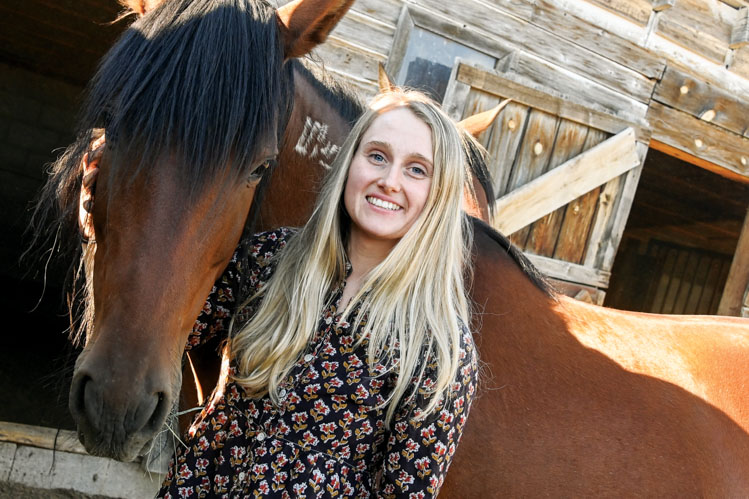 |
| Sheep deserve our respect, says Belle Fourche writer and rancher Sentel Schreier. |
Sentel Schreier learned the usual life lessons when she left her hometown of Belle Fourche to study economics at Augustana University in Sioux Falls — things like self-confidence and independent thinking — but she also had a dietary revelation.
“I just figured everyone enjoyed lamb once or twice a day,” she says. She was surprised to discover that most of her new friends didn’t know a lamb chop from a karate move. “They hadn’t grown up with it like I had,” she says. Lamb wasn’t served at the Augie dining hall and wasn’t to be found on the menus of restaurants in her home state’s largest city.
It was a culinary culture shock for a young girl who grew up on a fourth-generation family ranch believing that sheep are magical creatures that generously provide food and wool for mankind, all while maintaining an aura of dignity that she notes is even lauded in Bible passages.
On a college field trip to India, she was even more chagrined to discover that lamb was more popular there than it is in her home state, which ranks sixth in the nation in sheep production. “And most people are vegetarians in India,” she says.
Despite the change in diet, Schreier’s love for her West River roots never changed, and upon graduation in 2018 she returned home to teach Spanish at a secondary school. She married Nathan Schreier in July of 2021, and of course barbecued lamb was served at the wedding dinner.
Now she’s hoping to turn her husband into a sheepherder (he works in technology at the Belle Fourche schools). After two years, she left the classroom to join her father, Johnny Johnson, on the ranch. On a typical day, she rises long before the sun. She often “rounds up” a few ranch hands to help, and then makes the 50-mile trip north to the ranch where — depending on the season — they might rotate livestock to greener pastures, do some fencing, tend to newborn lambs or do the myriad other tasks related to raising cattle and sheep in western South Dakota.
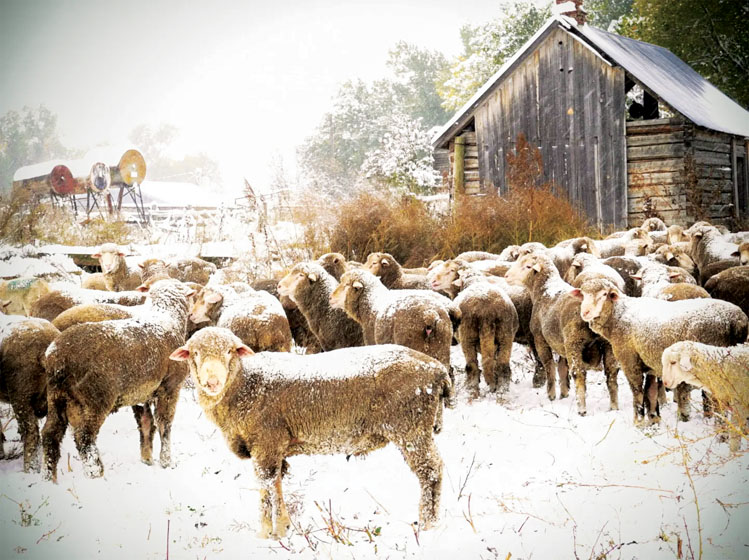 |
| South Dakota ranks sixth in the nation in sheep production. |
Over the summer, she was also taming and breaking two wild mustangs that came from a Bureau of Land Management range, while keeping watch on a big ranch dog that was hiding a litter of pups in the high grass that surrounds the outbuildings.
Through it all, Schreier still accomplishes some teaching; she does it now through a website she created to share thoughts on rural living and lamb chops. Her online essays are not the mushy cliches and stereotypes penned by too many western writers who only glorify the blue skies, beautiful landscapes and resilient cowboys. “Rugged individualism isn’t all that great,” she suggested in a recent article. “People who make a life out of isolation tend to be bitter towards society — perhaps because interacting with others takes practice. Complete solitude makes one rusty and we typically don’t like things we’re not good at. But it’s also really easy to hate people; we’re all infected with normalized self-absorption, greed, slander, everything that’s always, always been a problem for our species ….”
She even dared to critique Archer Gilfillan, an early 20th century sheepherder who became regionally famous for his humorous books and entertaining speeches to livestock groups. While she enjoyed reading Gilfillan’s book Sheep, she adds, “I do remember how egotistical and bitter towards other people this guy was … plus he put random Latin in the book everywhere. I hate it when authors do this without any reason other than to say, ‘Hey, I know Latin.’”
In another essay, she admits that as a teenager she sometimes wanted more entertainment. “On the ranch, there isn’t a whole lot of recreation. Your options are limited to either reading, radio talk shows or roping buckets. We barely have cell service so social media is an option only if you want to walk out to a hill or stand on top of a truck.” She surmised, however, that “when you have no one to entertain you, you see what a good, amusing friend you can be to yourself.”
Schreier also writes about her workdays, her family and her faith, including highlights and doubts. Her thoughtful reflections on the complicated culture of consuming the creatures she coddles are a rare take on rural life.
“Last week my dad, husband and I butchered a sheep so we could have grass-fed meat in our freezer for the summer,” she writes. “In about five seconds it was over, and the sheep was dead. It struck me how remarkable it is that the sheep never made a sound. They are silent under stress. Even when docking, it’s very rare for a sheep to cry out in pain. The prophet Isaiah related Jesus’ dignity in the face of death like that of a sheep for a reason. ‘He was oppressed and afflicted yet he did not open his mouth; he was led like a lamb to the slaughter, and as a sheep before its shearers is silent, so he did not open his mouth.’”
Schreier believes there should always be “an air of respect” when eating meat. “Try to buy meat from someone who gave that animal a good life,” she suggests. “Perhaps before a dinner of delicious lamb chops, thank God for that creature’s life and ask Him to make you more generous like the critter whose life ended to preserve yours. Let’s make dinner sacred and special again.”
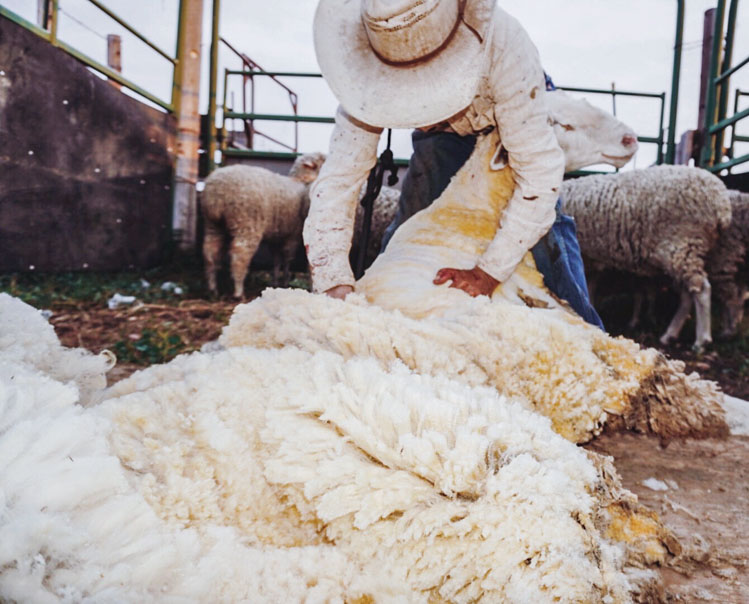 |
| The hubbub of shearing season interrupts the solitude of life on a West River sheep ranch. |
She and her father sell their lambs in the fall to feedlots but someday she hopes they might market meat directly to consumers. “Nathan and I even flirt with the idea of opening a restaurant that features lamb,” she says.
However, she says people need not wait for their grand opening to enjoy the flavor because there’s nothing very difficult about cooking lamb meat. “Lamb chops are comparable to a good beef steak,” she says. “Maybe marinate them with some olive oil and lemon, something acidic just as you would the steak. My dad and I will sometimes grill a lamb chop for breakfast. Lamb and eggs.”
She also recommends serving lamb with a Grecian sauce called tzatziki, which is made from sheep’s milk mixed with seasonings, herbs and cucumbers. “Nathan likes to go Mediterranean, and that’s always delicious,” she says.
She has learned that some people seem to avoid lamb because they think it is more complicated to cook than other red meats. “Or maybe they worry that they are going to mess it up,” she says. “But really there is no difference. You can go rare, medium or well done. You can make burger patties from ground lamb. And you can go traditional, just lamb and potatoes.”
She says her father remembers hearing that Americans soured on lamb after World War II, when the U.S. military supposedly served rations of poor-quality lamb to the troops. For many, it was their first taste of the meat, and they brought home a bad impression.
Give it another chance, suggests the young rancher who at age 25 is already developing a reputation as a rural spokeswoman who thinks for herself and respectfully encourages others to do the same.
Editor’s Note: This story is revised from the November/December 2022 issue of South Dakota Magazine. To order or to subscribe, call (800) 456-5117.


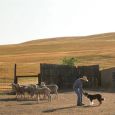

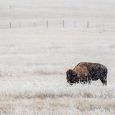

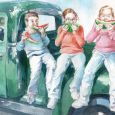

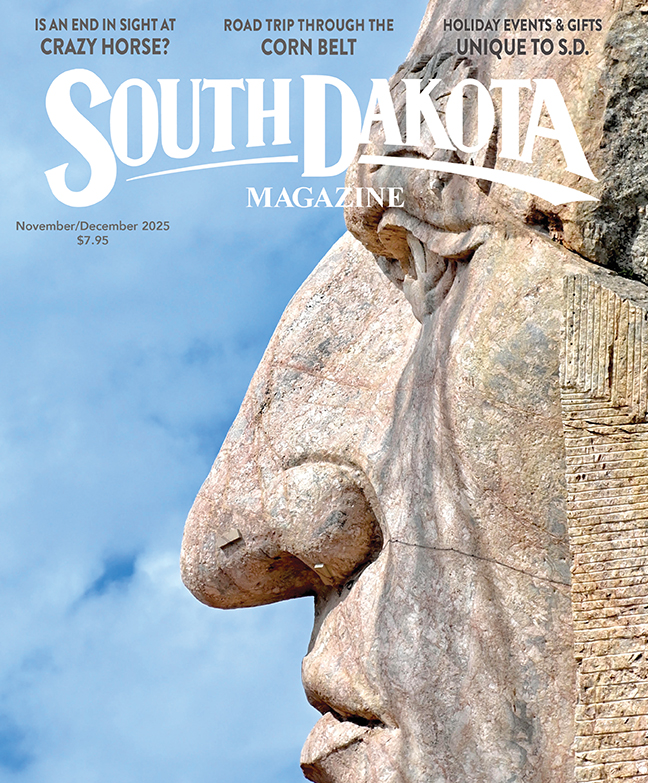
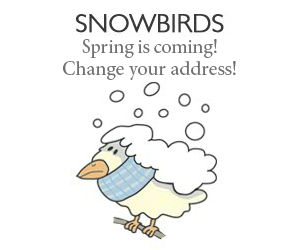
Comments